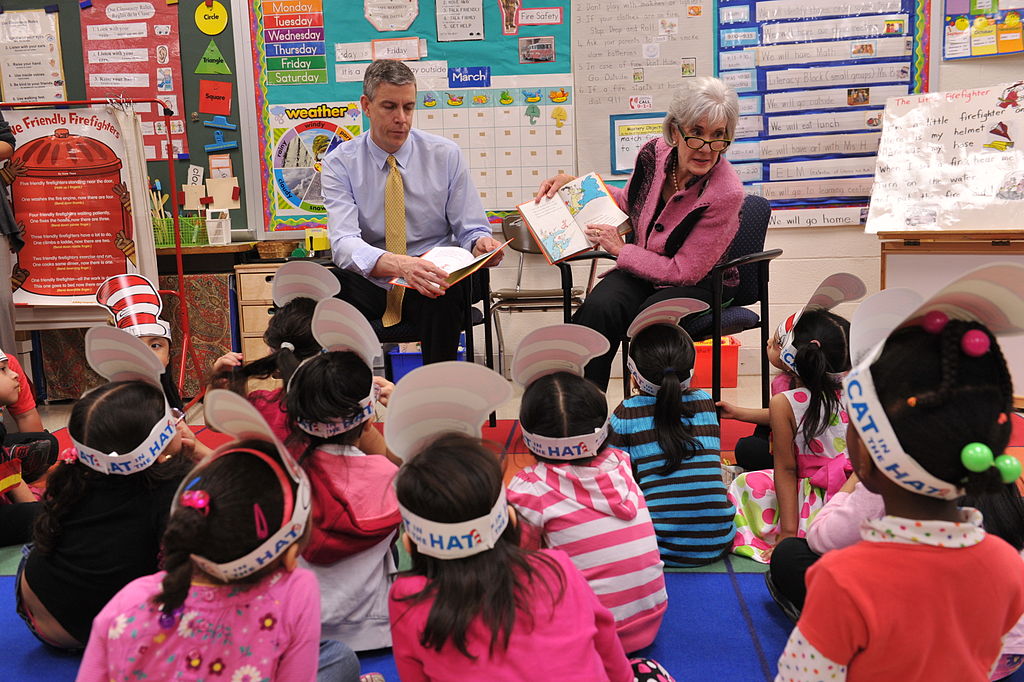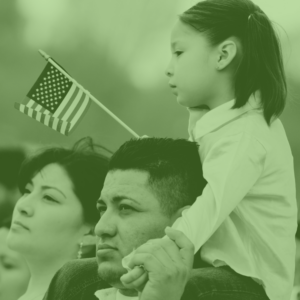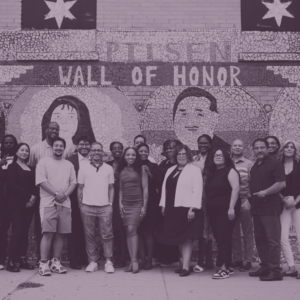 What compelled 32 Latino-community early childhood advocates, policy analysts and service providers from all corners of the United States to board red-eye flights, high-speed trains, and caravans to Washington, D.C. in late September? After months spent drafting comments and recommendations that address the nuanced needs and priorities of Latino communities, these advocates had the opportunity to bend Secretary of Education Arne Duncan’s ear and share their perspectives on and hopes for the federal early learning proposal, commonly known as Preschool for All.
What compelled 32 Latino-community early childhood advocates, policy analysts and service providers from all corners of the United States to board red-eye flights, high-speed trains, and caravans to Washington, D.C. in late September? After months spent drafting comments and recommendations that address the nuanced needs and priorities of Latino communities, these advocates had the opportunity to bend Secretary of Education Arne Duncan’s ear and share their perspectives on and hopes for the federal early learning proposal, commonly known as Preschool for All.
I was delighted to be one of those 32.
Convened by National Council of La Raza and attended by NCLR’s early childhood affiliates, the Department of Education’s extra-long conference table could barely accommodate all of the early education advocates, let alone the impressive roster of federal education officials, including Duncan, Roberto Rodriguez, Special Assistant to the President for Education Policy; Steven Hicks, Special Assistant on Early Learning; and Gabriella Gomez, Assistant Secretary for Legislation and Congressional Affairs.
After a summer spent discussing and whittling our wish list down to a digestible length, we were armed with explicit recommendations on the federal early learning proposal for systems-level change and a sequence of rationale statements backed by solid research and our collective decades of experience. The resulting message?: to build community-based organizations into the funding model; incorporate cultural and linguistic competency into measures of quality; explicit definitions of parental/family engagement; and dedicate resources for developing the workforce to meet the demand in high-needs communities.
Secretary Duncan listened intently—and generally agreed with our recommendations—but the discussion was straight out of School House Rock’s “How a Bill Becomes a Law” , a reminder of the long road we must travel to make the proposal—and hopefully, our recommendations—the law of the land. Duncan’s thoughts were loud and clear: Let’s get this bill out the gate first! Given the current Congressional climate, we could understand his point of view: Garnering the groundswell of support is a top priority when trying to move any piece of legislation.
But regardless of government gridlock, the meeting reaffirmed that legislators need to hear directly from constituents on the importance of this legislation, and more specifically, the impact it will have in different communities. We must keep in mind that early childhood outcomes extend beyond education and into our children’s eventual career opportunities and health.
Officials tasked us with coordinating advocacy campaigns to raise public awareness, educate legislators, and demonstrate public support in an effort to influence members of Congress to sponsor or vote for the bill. While there are multiple avenues for its passage—either through introducing a substantive bill in the Senate, or embedding pieces of the proposal in a budgeting package—there is a glaring imperative for providing a strong foundation for harnessing and growing our children’s potential.
Start spreading the word about the importance of early childhood education today by passing along this message, contacting your elected officials, or posting this short video on the urgent need for early learning (courtesy of the White House website) to your social media channels.
PHOTO: U.S. Department of Health and Human Services / Flickr / United States Government Work




